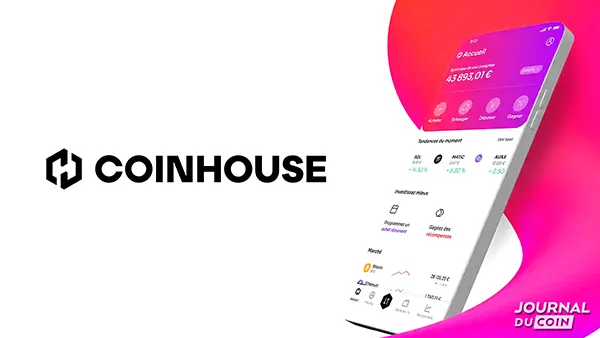
Coinhouse: The French Perspective on Cryptocurrencies
Coinhouse has emerged as a prominent player in the European digital asset market, distinguishing itself through a regulated, transparent, and client-focused approach. Based in Paris, the company blends traditional financial values with innovative blockchain technology, offering a unique entry point into the world of cryptocurrencies. This article explores the key aspects of Coinhouse’s operation, its services, regulatory background, and its broader role in shaping cryptocurrency adoption in France and across Europe.
Coinhouse and Its Unique Position in Europe
Coinhouse was founded in 2014 and initially operated as a Bitcoin store known as “La Maison du Bitcoin.” Over time, it evolved into a comprehensive crypto service provider, catering to both individual investors and institutional clients. Unlike many unregulated counterparts, Coinhouse is registered with the Autorité des Marchés Financiers (AMF) and complies with the French regulatory framework as a Digital Asset Service Provider (DASP).
This status provides users with added legal protection and aligns Coinhouse with anti-money laundering (AML) and know-your-customer (KYC) requirements. Such compliance underlines its credibility and positions it as one of the most transparent and secure cryptocurrency brokers in Europe.
As of June 2025, Coinhouse serves more than 500,000 clients, offering investment products, savings plans in crypto assets, and personalised customer support. Its clear interface and straightforward onboarding process make it accessible to new users while still being robust enough for seasoned investors.
Regulated Environment and Customer Trust
Coinhouse’s compliance with French and EU financial laws distinguishes it from many global competitors. It operates within the regulatory framework set by the AMF and is also compliant with the requirements of the European Markets in Crypto Assets Regulation (MiCA), which becomes enforceable across the EU from 2025. This ensures that customer assets are handled with maximum oversight and care.
Transparency is one of Coinhouse’s strongest assets. Its clients can access detailed transaction histories, account audits, and clear fee structures. The platform does not engage in opaque practices or hidden charges, which is often a concern in the crypto sector.
Moreover, Coinhouse actively participates in policy discussions, working closely with French regulators to shape the future of cryptocurrency in a sustainable and responsible way. This collaborative approach fosters trust among users and regulators alike.
Services and Features for Diverse Users
Coinhouse offers a wide range of services tailored to various user profiles, from beginners to institutional investors. It supports multiple cryptocurrencies including Bitcoin (BTC), Ethereum (ETH), and a growing list of ERC-20 tokens, alongside stablecoins. The company also offers recurring investment plans, crypto savings products, and cold storage solutions.
For businesses and high-net-worth individuals, Coinhouse provides dedicated account managers, detailed reporting tools, and over-the-counter (OTC) services. This helps clients execute large-volume transactions with minimal slippage and optimal confidentiality.
In addition, Coinhouse has launched Coinhouse Custody Services, offering secure asset storage solutions in partnership with trusted European custodians. This move addresses growing demand for institutional-grade security amid increasing institutional interest in digital assets.
Educational Support and Client Assistance
A major component of Coinhouse’s success lies in its educational initiatives. The company regularly publishes market analysis, guides, webinars, and tutorials to help users understand blockchain technology and manage risk effectively.
Its customer support team is known for its accessibility and expertise. Unlike many crypto firms that rely solely on automated responses, Coinhouse provides direct access to real people—available via email, phone, and in-person appointments at their Paris headquarters.
This level of client engagement helps demystify the crypto world and empowers users to make informed financial decisions, thereby reducing exposure to fraud and market volatility.

Coinhouse’s Broader Role in the European Crypto Ecosystem
Coinhouse is not only a service provider but also a catalyst for digital finance transformation in Europe. By advocating for regulatory clarity and offering secure access to digital assets, the firm plays a key role in legitimising the crypto industry.
In 2025, Coinhouse continues to support efforts to make Paris a hub for financial innovation. It collaborates with fintech companies, universities, and government bodies to promote blockchain adoption in sectors such as identity verification, tokenised real estate, and decentralised finance (DeFi).
Its efforts contribute to building a digital economy that balances innovation with regulation, making cryptocurrencies more accessible and less risky for the average user.
Challenges and Future Outlook
Despite its success, Coinhouse faces challenges common to the crypto sector. Market volatility, cybersecurity threats, and regulatory uncertainty across different jurisdictions can affect user trust and business continuity. However, its proactive compliance and institutional partnerships help mitigate these risks.
Looking ahead, Coinhouse plans to expand its product offering to include tokenised investment vehicles and further develop its crypto savings services. The firm is also exploring partnerships with traditional financial institutions to bridge the gap between crypto and conventional banking.
As France leads regulatory reform in the EU, Coinhouse is well positioned to influence the continent’s approach to digital assets. Its model serves as an example of how crypto businesses can grow responsibly without compromising on user protection and regulatory standards.
